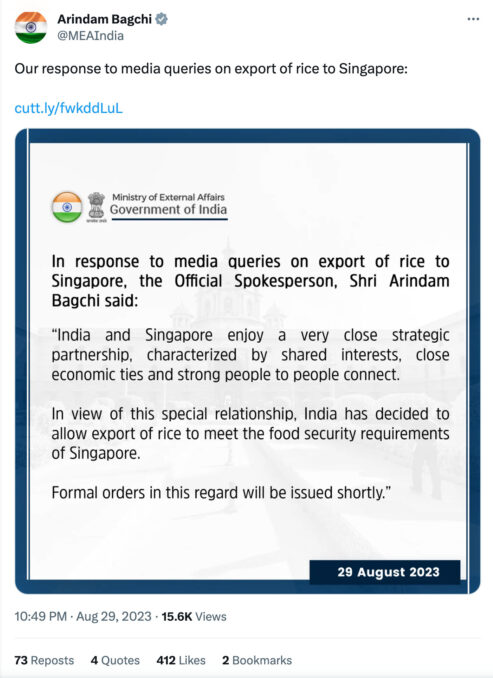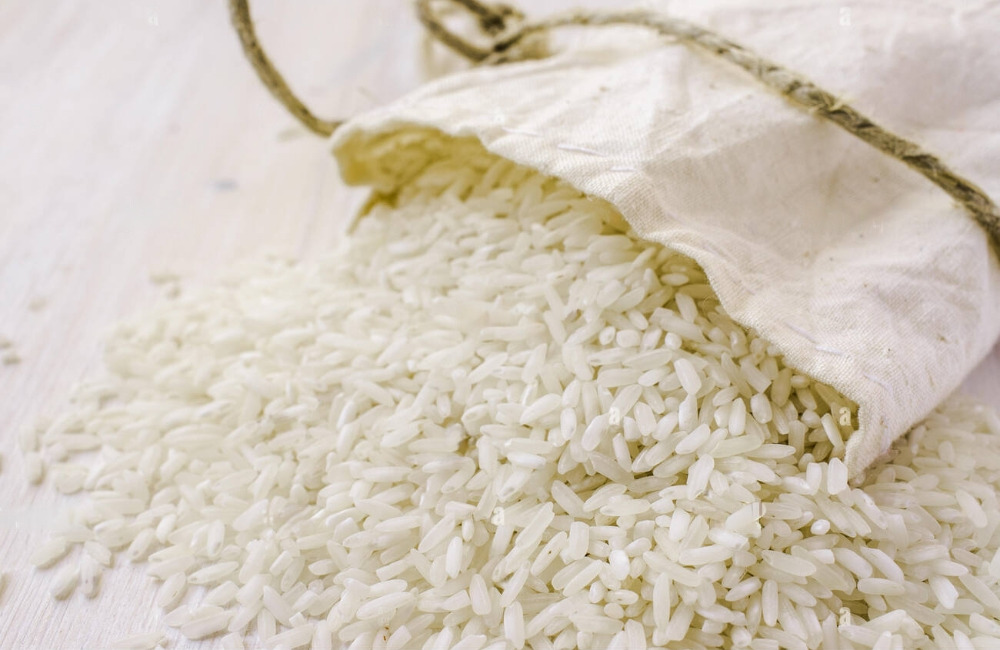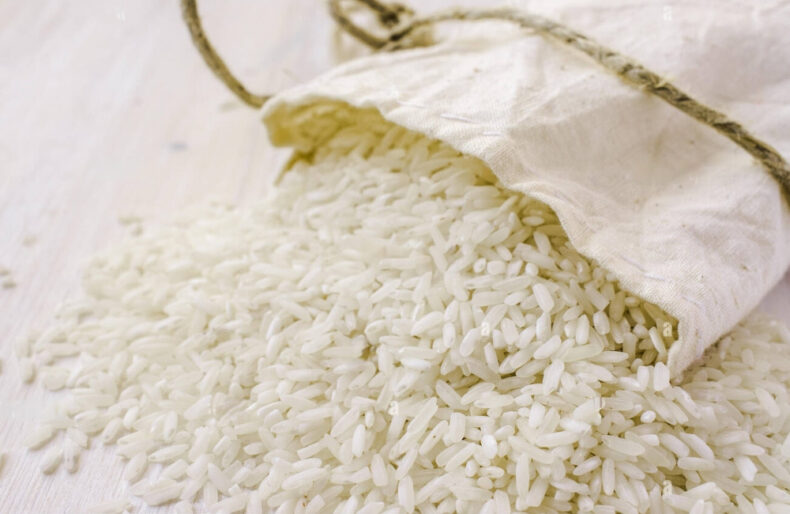July imposed Rice grain export ban, relaxes for Singapore as announced by the External Affair Ministry of India. Is it on the pretext of ‘special relationship’? Or is there another country involved?
India, the world’s largest rice exporter banned the export of non-basmati rice owing to creating reasonable prices within the domestic markets of the grain on 20th of July 2024. A further development in this ban came through when a few days ago, a temporary ban on the export of any kind of basmati rice as well, on any consignment which was being sold for less than $1,200 per tonne was imposed.
But what came as a surprise, was a recent update that stated that the south-east Asian country, Singapore would be exempted from the ban on grounds of the special relationship that it shares with India.
Table of Contents

History of the Ban
On suspicion of foul play with illegal export of non-basmati rice, and the subsequent inflating rates within the domestic market, the Indian Government took a massive step to curb such activities. Prior to this, the government had also imposed a 20 percent duty on the export of parboiled rice, while in the September of the preceding year the export of broken rice had been completely shunned. This was a huge blow to the global market especially across the continent of Asia wherein India held a clutching 40% of rice export , stated Tanner Ehmke, lead economist for grains and oilseeds at CoBank.
What makes Singapore an exception?
In a report from the news establishment, Channel News Asia, it was reported that non-Basmati rice from India constitutes 17% of the total rice import of Singapore and the large dependency on the food staple was rather harsh on them. According to the Singapore Food Agency (SFA) the recent ban has afflicted the food supply chain. This then prompted a consultation between the two countries on a communal agreement.
Arindam Bagchi, the official spokesperson for the Ministry of External Affairs released an official statement as a response to all the media queries and clarified that this particular move stemmed from the special relationship that the two shared that safeguarded the food security requirements for Singapore and reflected upon the close economic ties, their shared interests and strong people-to-people connection.

Additional Angle
Certain experts were also of the opinion that a certain country could be involved in this move too, that certain someone being China. Beijing remains Singapore’s largest investor and trade partner, and on the front of food grain export China was Singapore’s fourth-largest supplier of the food staple as reported in 2020; it imported $11.5 million (Rs 95 crore) worth of rice from Beijing. However, in the same year India reportedly made an export of around $60 million.
Quite interestingly, earlier in April of 2024, Singapore and China formally upgraded their relationship. From ‘All-Round Cooperative Partnership Progressing with the Times’ in 2015, the ties have now been upgraded to ‘All-Round High-Quality Future-Oriented Partnership’. On a constituent meeting with both the sides an agreement for the exchange of information regarding food safety frameworks and policies was also promised ensuring food trade backed with assurance.
According to the International Monetary fund, there is a speculated rise of 15% with India’s recent move on the export ban. And Singapore is not the only one who bear relaxation from this imposition but reportedly Mauritius and Bhutan, the two key diplomatic partners will come under this framework on the pretext of humanitarian operations.
Explore more by the Author at : https://asianatimes.com/author/jui-mahalley/













